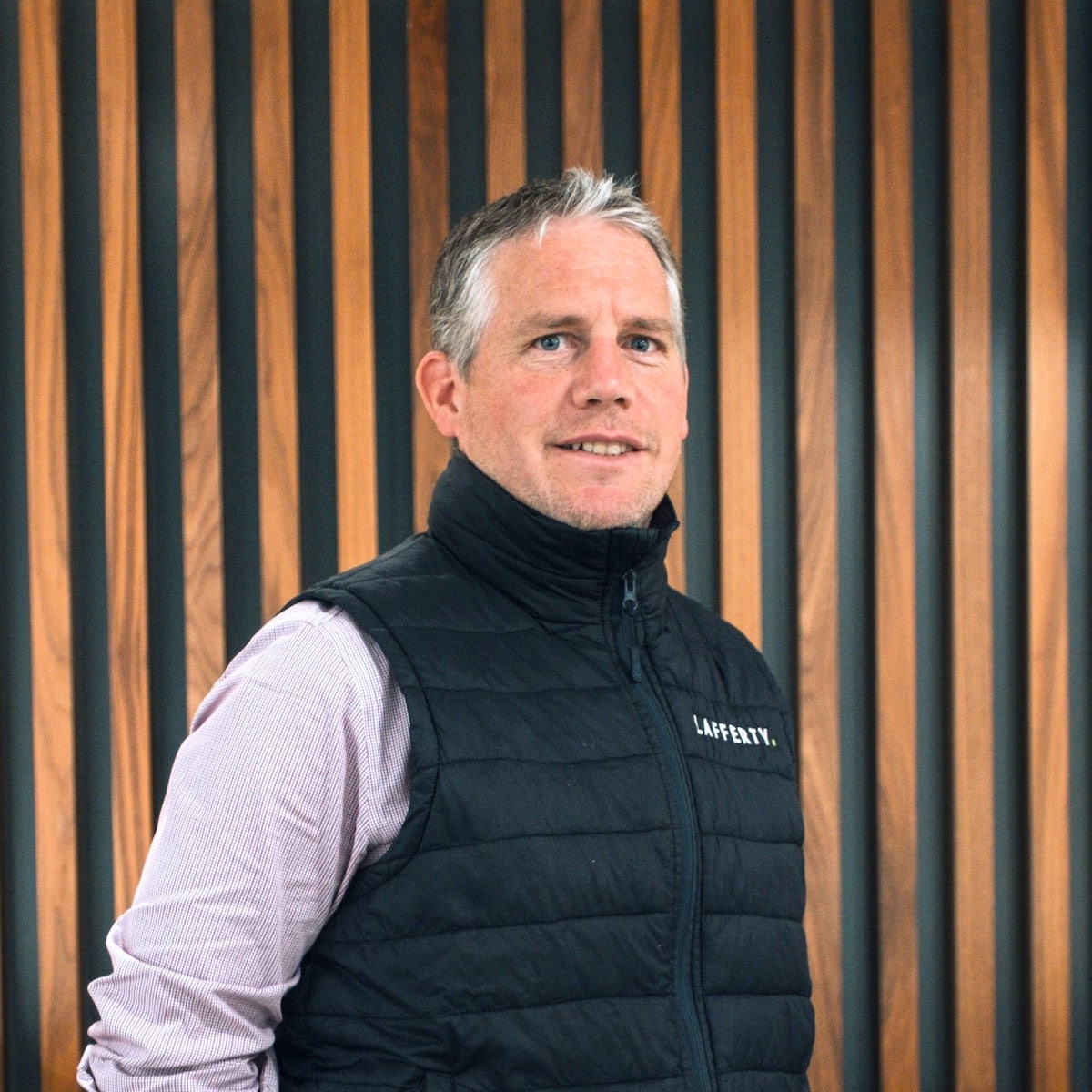What is Project Management?
At Lafferty, we are often asked what it is we do. While Project Management is just one part of what we do, we thought it was worth elaborating on with the help of James Wood, one of our senior project managers. We had a chat with him to understand what he does and a little bit more about his role.

If you were to talk to a new recruit, how would you explain the role of the project manager?
“The project manager is the glue between all of the other professional consultants. Ultimately, it is a case of driving the team and pulling them all in the same direction to reach a common goal.
The analogy that I was given when I was training, was to think about it as a game of rugby. You need to all go in defence together, but you need to pull in backwards and forwards to achieve the goal.
As a project manager, you typically aren’t the master of anything, but have a broad knowledge base of a project from cradle to grave.to ensure the project is driven forwards.
When things are going great, it is amazing. But if there are issues you are typically in the firing line and required to work with the team to solve the problem in a timely manner.
It is a very rewarding role, as there’s nothing better than being able to walk around a town or city and explain to colleagues / friends and family that you worked on a certain project and are able to provide an in-depth overview of some of the key elements of the project.
You are exposed to some incredible people, clients , professional teams, and contractors, who are specialists in their line of work. One minute you can be on site with a sub-contractor looking at samples, and the next meeting be with lawyers or bank funders. Every day has the ability to be completely different!
You never get bored! Every day is a school day.
You are exposed to many different things. Yes, there is a process when working through a project. But ultimately, different things come up, different challenges are required to be overcome.”
Is there a ladder in the career progression as a Project Manager?
You need to understand what the project manager (PM) does. As PM, you are the “go to” point of contact for the client. You are managing specific tasks as a junior. Then, as you mature into the role, so to speak, you can then take on more tasks. Eventually you will be able to take on a whole project, starting with a smaller project at first. Each PM can develop from there. There will eventually be bigger roles and bigger projects.
Do you like having a mix of projects?
Working on a variety and scale of complex projects is nice, but typically speaking, all projects require the same process management to be implemented. From a PM point of view, it is a case of trying to get the best out of people. Everybody has different drivers. Nobody is the same. It is trying to understand what motivates people. Relationship building is so important. As a PM your aim is to try and get the best out of everyone.
What is the skill set required by a PM?
Communication! As long as you can communicate, you’re sociable and you’re honest, then you will be fine as a project manager, as you master the processes / technical information. It is all about building relationships!
What is the current climate?
In the current climate, all three elements are closely weaved together. And also the risk of what’s happening out there with war, Covid, Brexit, etc.
I think it is worth saying if you look back through history there have been wars, pandemics and people leaving organisations. However, all three in the space of 4 years is pretty unprecedented.
Labour, supply chain and additional pressure is a difficult environment. But there is always a requirement for a built environment. One sector might go down, but another will rise.
In conclusion, it is fair to say that the role of the project manager is very diverse. Our project managers bring the Lafferty values of Teamwork, Professionalism, Commitment and Growth to every project. Thank you to James Wood for sharing his insights with us.




